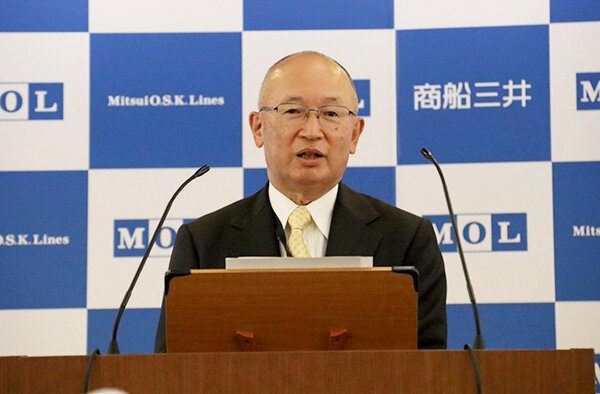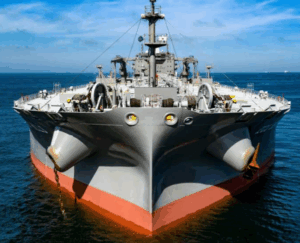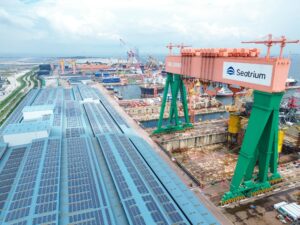Japan´s shipping major Mitsui O.S.K. Lines (MOL) unveiled that its group company MOL Drybulk and Kambara Kisen signed a basic agreement on time charter for a newbuilding methanol dual fuel bulk carrier, to be ordered and owned by Kambara Kisen.
The new vessel, which is slated to be delivered by Tsuneishi Shipbuilding in 2027, is designed to use e-methanol produced primarily by synthesizing recovered CO2 and hydrogen produced using renewable energy sources, and bio-methanol derived from biogas.
The firm said on Wednesday in a statement that the vessel’s design maximizes cargo space, while ensuring sufficient methanol tank capacity set to allow the required navigational distance assuming various routes.
The vessel is expected to serve mainly in the transport of biomass fuels from the east coast of North America to Europe and the U.K. and within the Pacific region, as well as grain from the east coast of South America and the U.S. Gulf Coast to Europe and the Far East.
It’s worth mentioning that MOL has set the goal of achieving net zero greenhouse gas (GHG) emissions by 2050.
The Japanese MOL Group now aims to have 90 LNG/methanol-fueled vessels in service by 2030.
MOL´s President and chief executive, Takeshi Hashimoto delivered his message about decarbonisation in “Summer Davos” in June.
During his presence at the annual meeting of the New Champions (commonly known as “Summer Davos”) held by the World Economic Forum in Tianjin, China from June 27-29, Mr. Hashimoto reiterated his commitment to work together with partners to contribute to the decarbonization of ocean shipping.
As the Japanese major states “MOL has positioned its environmental strategy as one of the key strategies in its “Blue Action 2035” management plan, and has set the goal of achieving net zero greenhouse gas (GHG) emissions by 2050 in the MOL group environmental vision 2.2.”



